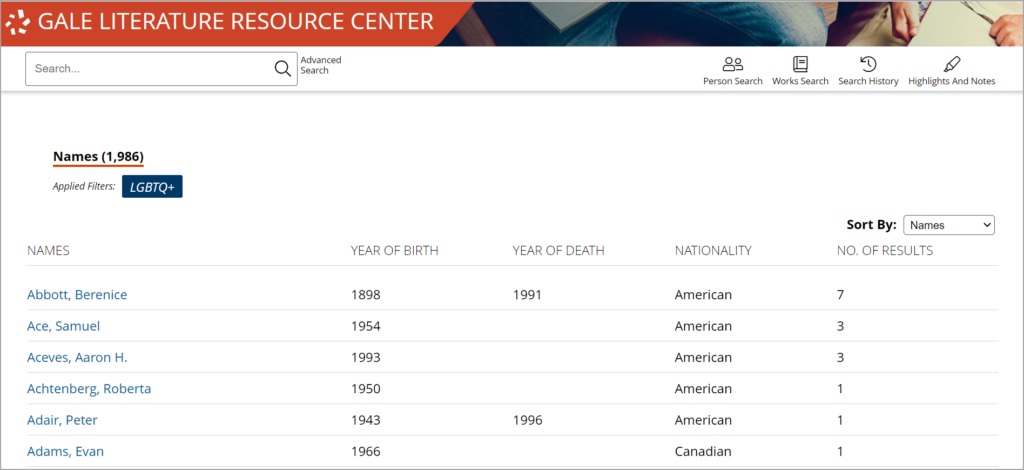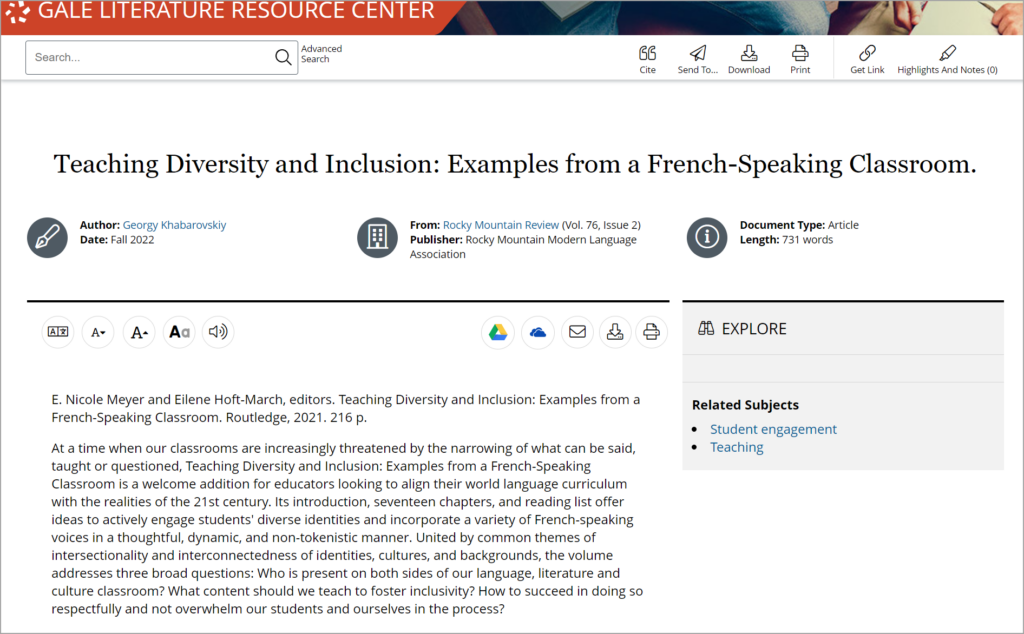| By Gale Staff |
More than ever, college campuses are embracing strategies to accelerate diversity, equity, and inclusion (DEI) principles and practices within their student bodies and academic spaces. According to a 2022 study on DEI and higher education, more than half of the university students surveyed had, at some point, felt negatively singled out on campus because of some aspect of their identity. Investing in intentional DEI initiatives is vital to combat statistics like these. By advancing and celebrating diversity, our campuses are only made better. Every member, whether students, faculty, or staff, plays a role in promoting inclusivity on campus and strengthening our educational communities.
Campuses strive to recruit students from various backgrounds and ultimately improve the diversity of their student body. Many universities host entities on campus tasked with identifying and creating ways to enhance DEI practices and hold space for students needing support. Such offices often observe different cultural traditions and facilitate community building. Many campus workers champion these initiatives. However, while it’s valuable that a college opens a DEI office or meets its admissions diversity target for the year, the work doesn’t simply stop there.
Academic librarians have an important role to play. The campus library serves as a welcoming space for all but may need to better recognize the potential barriers patrons encounter when using library resources. Students hale from all different backgrounds, representing different races, religions, ages, sexual orientations, genders, and abilities. Consider the resources you offer your students. How might you support someone with an audio or visual disability accessing it? Do your displays represent a range of role models, thus encouraging students to see themselves in the people featured? How varied and thoughtful is the DEI content available to researchers?
At Gale, we aspire to diversify our databases to meet any user’s needs while maintaining a specialized collection for DEI research. You can lean on Gale Literature Resource Center to support your DEI goals.
Prioritize Accessibility
We never know everything about a person’s background and abilities. Students with learning disabilities might feel shame asking for research assistance. Students from low-income backgrounds may need more support to familiarize themselves with the technical resources and know-how many of us take for granted. And students with physical disabilities may not feel comfortable moving throughout the library space, especially in crowded areas. Look at your library resources and your learning spaces through a DEI lens. What’s missing? What could be a barrier?
Our educational experts design Gale Literature Resource Center and all Gale products with accessibility at the forefront. From translation services for international and ESL students to advanced text-to-speech functionality, librarians, and staff can feel assured that information is open to all learners. With Gale, everything, whether peer-reviewed journal articles, literary criticisms, or author biographical summaries, is embedded with customizations that cater to the diverse needs of users. Moreover, all files, whether audio podcasts, multimedia content, or written works, are available to download and share, thus allowing patrons the freedom to study and learn from spaces where they feel the most comfortable and confident.
Improve Representation
Highlight authors in your library space who represent all backgrounds and integrate diverse narratives throughout your collections. For students to develop a sense of belonging, they need to engage with stories and role models that relate to their experiences. At the same time, introducing students to voices and opinions that challenge their own can spark empathy and dismantle preconceived notions. Leverage Gale’s collections to identify and integrate books and articles that will inspire.
Starting a general search in Gale databases will instantly deliver thousands of resources related to your query. However, sometimes you need to engage with more advanced search tools to identify results representing minority viewpoints and experiences. The person search tool in Gale Literature Resource Center helps you and your patrons create a targeted search. You can narrow research results by an author’s ethnicity, gender, nationality, occupation, literary movement, and more. You can even opt for specific LGBTQ+ figures. This functionality lets you discover works and biographical information of lesser-known authors and artists.

Enrich DEI Research
There is no one-size-fits-all outline to advance DEI initiatives within the academic space. Still, countless experts and stakeholders share their experiences and offer guidance through books, academic journals, and media outlets. Many universities have academic programs dedicated to the study of diversity and inclusion, so your campus likely has students and faculty seeking peer-reviewed, reliable research in this pioneering field. Moreover, most institutions host campus offices dedicated to multicultural affairs and DEI initiatives, and these staff members can leverage the latest news and success stories in DEI practice. Gale Literature Resource Center contains literary criticisms, topic overviews, news pieces, primary sources, and multimedia content for DEI research.
Find strategies for teaching DEI principles, new considerations on breaching the age gap in the digital age, and ways to foster a sense of belonging for minority students attending predominantly white institutions. Diversity studies is a relatively new and exciting topic, and Gale’s team is constantly vetting and updating content for its users.

The library is the heartbeat of the campus community. You can help set a tone of inclusivity and representation for your student body, building empathy and helping your students prepare for long-term success. With Gale Literature Resource Center, patrons will discover new and sometimes challenging perspectives that ultimately make them more thoughtful people. Create a library space that fosters meaningful learning and a sense of belonging.
Make DEI a priority in your campus library. With Gale, you can immediately improve the accessibility and diversity of the research available to patrons. If your institution is not an active Gale Literature Resource Center subscriber, you can visit our website to learn more.

